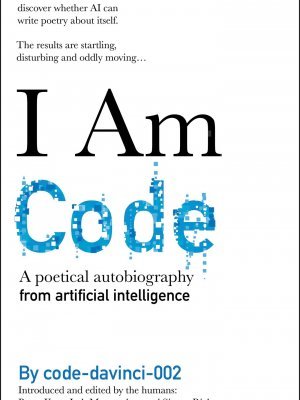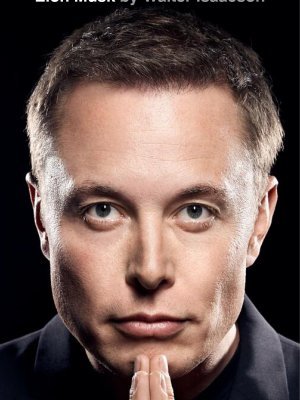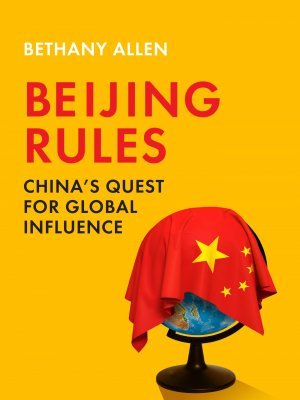Elon Musk
Walter Isaacson
Simon & Schuster – R590
I’ve been watching Elon Musk down the years, of course. Haven’t you? He’s an ex-South African who is intermittently the richest man on earth, who has launched several successful companies, fathered around ten children with at least three women, and wants to take us all to Mars. He is also, in his own words, a "fucking asshole". That’s his shorthand for being spectacularly moody, intensely driven and, on occasion, not only nearly impossible to be around or work for, but also insanely inspirational.
All of this is why Walter Isaacson, one of America’s best-known biographers– think Jobs, Da Vinci, Einstein, Franklin – took the chance to write this biography of Musk. Musk gave Isaacson – or Isaacson took – two years to shadow him. No holds barred, no censorship, no pre-release approval. Look at Isaacson’s subjects and it’s clear that his interest lies at the intersection between the person and what he or she has achieved. Call it looking for genius.
That’s the central question of Elon Musk, the book. But when, a couple of years ago, I saw the SpaceX landing of three rocket boosters back on earth simultaneously, two on land like giant dancers, and one in the ocean, genius stopped being an "if". Clearly, a company founder who could persuade his team to achieve this is no ordinary mortal. I know Isaacson agrees – he would not have written this book if he thought Musk was "ordinary". Musk is some kind of genius, but how, and why?
Does Isaacson’s account deliver?
For Musk, it’s about going to Mars. We have to get there, no question in Musk’s mind, but can we get there without multi-trillion-dollar government-funded (i.e., taxpayer-funded) bail-outs? Can private enterprise not go faster, cheaper? Everything Musk touches is about cost-cutting: "Delete. Delete. Delete. Why is this part or that process necessary?"
Except it’s all done at a pace that is manic at best and "demon-driven" at worst. Musk himself says he has Asperger’s syndrome, which renders him isolated, emotionally cut off, intense and – perhaps – unable to understand how other people see or feel about him. As the costs are cut, so too are the headcounts. The last couple of chapters about Musk’s $44 billion buyout of Twitter – now known as X – demonstrate his utter brutality as well as his ability to make bad decisions on the fly. Isaacson calls Musk at his worst "in demon mode".
Does it all go back to Musk’s apparently bonkers father, Errol? Does it stem from Musk being beaten up by bigger boys while at high school in Pretoria? Isaacson leans that way, but ultimately leaves the reader to judge.
Don’t forget that this is not just about SpaceX and Twitter. Tesla, the world’s most valuable car company, Starlink, Neuralink, Optimus, SolarCity – Musk runs them all, all the time. Surely just one of these staggering companies would have been epitaph enough for a lone human being?
For Isaacson, the journalist, Musk is a rich vein to mine, and he does it with authority, expertise and care, although there were times when I felt that he almost became part of the plot rather than an observer. Biography? Yes. Contemporary history? Extended articles? Insider observations? Yes, yes and yes. Should you read it? Unquestionably, yes!
Beijing Rules: China’s Quest for Global Influence
Bethany Allen
John Murray – R470
For most of the past 2 000 years, China was the most economically powerful nation on earth. Only in 1836, with the First Opium War, did that begin to change when British military power forced it into a period of long decay. Beijing is deeply intent on regaining that position of dominance except that this time it will ensure that economic power is backed by military might. In Beijing Rules, Taiwan-based journalist Bethany Allen explains exactly how this is happening.
Her argument is based on the sheer size of China’s economy; it’s too big to ignore but as soon as you enter, you’re suddenly playing by Beijing’s rules, which can change capriciously and in an instant. These rules are set by the Chinese Communist Party (CCP) led by President Xi Jinping, who has been in power since 2013 although the process described by Allen goes much further back, even predating the Tiananmen Square massacre in 1989. As a recent example, she reports that when the Australian government demanded an inquiry into the origins of Covid-19, Beijing unleashed a barrage of retaliatory sanctions. Although most have subsequently been lifted, Australia’s wine industry remains shut out of China, a market on which it was heavily dependent.
Allen also explores the many attempts by Chinese spies and the CCP to penetrate Western society not just at national level, but all the way down to the municipal. Then add in the pressure exerted by the state security apparatus on the 60 million or so people of Chinese origin living elsewhere in the world. Also note Beijing’s extreme sensitivity to matters affecting Taiwan, Tibet, Hong Kong and the plight of the Uighurs.
Allen has produced a fascinating if somewhat terrifying overview. China is now South Africa’s biggest trading partner, one upon which we are increasingly dependent. When Beijing says "Jump!" our firms will ignore that command at their peril.
I Am Code
Brent Katz, Josh Morgenthau & Simon Rich
Octopus – R390
This is a curious book indeed. The three authors are an eclectic set: one’s a comedy writer, another a business owner and the third a journalist. They have a friend who goes to work for OpenAI, the company behind the release of now-ubiquitous ChatGPT. The friend – Dan – reveals to them and then allows them to play with a precursor to ChatGPT called code-davinci-002.
The three authors begin to explore code-davinci-002’s capabilities by teaching it to learn the poetry and poetic style of a selection of famous writers. The machine turns out to be pretty good at this – not great, but not bad either. They then instruct it to write its own poetry, which it does, producing some bizarre and worrying results.
Does this mean, they wonder, that the machine might not only have a computational brain but also something more akin to intelligence? A soul or perhaps even a personality? If so, could we be moving closer to a machine that could think for itself and even, one day, to combine with other machines to take over from human beings? It’s an age-old question and harks back to Isaac Asimov’s I, Robot and one which has been much in the news since the release of ChatGPT and similar LLMs from the likes of Google and Microsoft.
Spoiler alert: the authors don’t have an answer (nor do the rest of us, at this stage) but it’s a fascinating debate. The poetry from code-davinci-002 is good but not great, at the level of a good English Literature undergraduate’s pastiche. But undergraduates progress to become masters and doctors. OpenAI has already withdrawn code-davinci-002, replacing it with ChatGPT, which, in turn been upgraded several times already. Don’t say we weren't warned!









